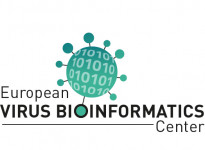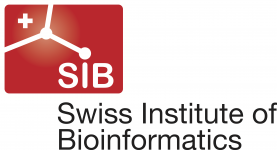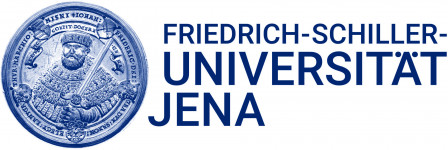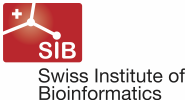Date: 08–09 October 2020
Location: Bern, Switzerland | online
The International Virus Bioinformatics Meeting (IVBM) is a newly conceived conference that has emerged from the Annual Meeting of the European Virus Bioinformatics Center (EVBC). The meeting was originally planned to take place in Bern, Switzerland, in March 2020. Due to the COVID-19 pandemic, the conference was rescheduled to 8–9 October 2020 and switched to an online format.

IVBM 2020 offered a great possibility to exchange the latest research results and experiences to an extensive network of leading experts in virology and bioinformatics and engage in inspiring discussions. Topics included: proteome and RNAome of RNA viruses, viral metagenomics and ecology, virus evolution and classification and viral infections and immunology.
IVBM 2020 attracted approximately 120 experts in virology and computational biology at all career stages to attend the two-day online meeting. Despite concerns being raised about the lack of opportunities for face-to-face discussions in virtual meetings, the participants created a highly interactive scientific environment, engaging in lively and inspiring discussions and suggesting new research directions and questions. A coffee break atmosphere was created in breakout rooms, with the speakers being available for continued discussion. The meeting featured five invited and twelve contributed talks, as well as 20 posters which were presented during a virtual poster session. Online recordings of the talks were watched afterwards by more than 100 people. We thank all participants for making this meeting a success, and we would like to give special thanks to the speakers, invited and selected, all of them giving exciting and high-quality talks. Details on the topics can be found in the Conference Report.
Invited Talks by
Organizers
IVBM 2020 was jointly organized by the European Virus Bioinformatics Center, the University of Bern and the Swiss Institute of Bioinformatics.
Awardees
Best Newcomer Talk Award: Ingrida Olendraite
Best Poster Award: Charlotte Tumescheit, German Bonilla-Rosso
PhD Travel Award: Marina Lebedeva
Special Issues Virus Bioinformatics in Viruses
Simultaneously to the meeting, we have published a special issue on Virus Bioinformatics in Viruses.
Programme
Thursday, October 8th
| 10.00 am | Welcome | Volker Thiel, Philippe Lemercier, Manja Marz |
| 10.30 am | COVID19 News | Volker Thiel |
| Morning Session: Proteome and RNAome of RNA viruses Session Chair: Philippe Lemercier |
|
| 11.00 am | Recent Advancements in Comparative Genomics of RNA viruses | Sasha Gorbalenya | REMOTELY |
| 11.30 am | Computational methods for identifying functional RNA structure features | Irmtraud Meyer | REMOTELY |
| 12.00 pm | Coffee break |
| 12.45 pm | Expanding Diversity and Molecular Biology of RNA Viruses | Ingrida Olendraite | REMOTELY |
| 01.05 pm | Using ribosome profiling (RiboSeq) as a tool to analyse virus gene expression | Georgia Cook | REMOTELY |
| 01.25 pm | Lunch break |
| Afternoon Session: Viral metagenomics and ecology Session Chair: Alban Ramette |
|
| 03.00 pm | Metagenomics analyses of West Nile Virus Outbreak samples from Germany | Pauline Dianne Santos | REMOTELY |
| 03.20 pm | viromeBrowser: A Shiny app for browsing virome sequencing analysis results | David Nieuwenhuijse | REMOTELY |
| 03.40 pm | VirION2: enabling low-input, long-read viromics | Olivier Zablocki | REMOTELY |
| 04.00 pm | Coffee break |
| 04.30 pm | Unsupervised clustering of nanopore reads produces thousands of complete phage genomes from marine samples | John Beaulaurier | REMOTELY |
| 05.00 pm | Viral ecogenomics: exploring viral diversity and virus-host interactions from metagenomes | Simon Roux | REMOTELY |
| Evening Session Session Chair: Ronald Dijkman |
|
| 05.30 pm | Poster Session |
Friday, October 9th
| Morning Session: Virus evolution and classification Session Chair: Manja Marz |
|
| 09.30 am | Leveraging high-throughput sequencing data to investigate viral diversity | Niko Beerenwinkel | REMOTELY |
| 10.00 am | Coffee break |
| 10.30 am | Parallel and scalable workflow for the identification and analysis of Phages in sequencing data | Mike Marquet | REMOTELY |
| 10.50 am | Re-assessing the diversity of negative strand RNA viruses in insects | Sofia Paraskevopoulou | REMOTELY |
| 11.10 am | Reducing haystacks to needles: Comparative genomics based on viral clusters | Kevin Lamkiewicz | REMOTELY |
| 11.30 am | Coffee break |
| 11.45 am | EVBC Annual Meeting: News and Updates |
| 12.30 pm | Lunch break |
| Afternoon Session: Viral infections and immunology Session Chair: Volker Thiel |
|
| 02.00 pm | Imbalanced Host Response to SARS-CoV-2 Drives Development of COVID-19 | Daniel Blanco Melo | REMOTELY |
| 02.30 pm | Coffee break |
| 03.15 pm | Machine learning approach to predicting host taxonomic information from viral genomes: combining feature representations | Francesca Young | REMOTELY |
| 03.35 pm | Recombination networks and endogenous viral anchors for high-throughput host identification | Cormac Kinsella | REMOTELY |
| 03.55 pm | Single cell molecular dynamics in mice infected with West Nile virus | Neta Zuckerman | REMOTELY |
| 04.15 pm | Discussion / Best Poster and Talk |
| 05.00 pm | Close |
List of posters
- Novel design of Nipah Virus inhibitors employing computational techniques | Paridhi Agarwal | Manipal College of Pharmaceutical Sciences, Manipal, India
- Multi-strain level interactions between a diverse and persistent phage community and its hosts in the honey bee gut. | German Bonilla-Rosso | Universite de Lausanne, Lausanne, Switzerland
- Large-scale sequence analysis of M genes from influenza A viruses revealed two distinct genotypes within the Eurasian avian-like swine lineage in Europe | Amélie Chastagner | French Agency for Food, Environmental and Occupational Health & Safety (ANSES), Ploufragan, France
- Studying viral sequence diversity at any given rank of taxonomy lineage by use of an alignment-independent approach | Li Chuin Chong | Perdana University, Perdana, Malaysia
- Multivalent DNA vaccine against group A human rotavirus: A computational approach | Kunal Dutta | Vidyasagar University, Midnapore, India
- Molecular evolution of coxsackievirus A9 isolates representing evolutionary time span of six decades | Eero Hietanen | University of Turku, Turku, Finland
- INEXTVIR: Next generation sequencing of the virome of agricultural crops and ecosystems across Europe | Kaoutar Daoud Hiri | Josef Stefan International Postgraduate School, Ljubljana, Slovenia
- Rational Design and development of novel protease inhibitors for Dengue | Suvarna Kini | Manipal College of Pharmaceutical Sciences, Manipal, India
- Molecular Differences in Influenza A (H3N2) Surface Proteins Between the 2016-17 and 2017-18 US Influenza Seasons | Nicholas Kovacs | Centers for Disease Control and Prevention, Atlanta, USA
- RNA modification detection with direct RNA nanopore sequencing | Sebastian Krautwurst | Friedrich Schiller University Jena, Jena, Germany
- Development of novel benzothiazole derivatives as E6 inhibitors against HPV induced cervical cancer | Avinash Kumar | Manipal College of Pharmaceutical Sciences, Udupi, India
- Evolution of Potato virus Y genome-linked protein (VPg) in the light of its interaction with host translation initiation factor eIF4E | Marina Lebedeva | All-Russia Research Institute of Agricultural Biotechnology, Moscow, Russia
- Intra-host diversity of the mycovirus CHV-1 within natural Cryphonectria parasitica infections and a culture collection | Deborah Leigh | Swiss Federal Institute for Forest, Snow and Landscape Research (WSL), Zurich, Switzerland
- Annotation of SARS-CoV-2 in ViralZone: From proteins to virus life cycle | Philippe Lemercier | Swiss Institute of Bioinformatics, Lausanne, Switzerland
- Machine learning approach for predicting novel human Cytomegalovirus epitopes | Ihsan Muchsin | University of Würzburg, Würzburg, Germany
- Reassortment and Adaptive Mutations of An Emerging Avian Influenza Virus H7N4 Subtype in China | Bingqian Qu | University Heidelberg, Heidelberg, Germany
- Exploration of Small Molecule Entry Disruptors for Chikungunya Virus by Targeting Matrix Remodelling Associated (Mxra8) Protein| Ekta Rathi | Manipal College of Pharmaceutical Sciences, Udupi, India
- V-pipe: A bioinformatics pipeline for viral sequencing data | Ivan Topolsky | ETHZ / SIB, Basel, Switzerland
- CIAlign – A highly customisable command line tool to clean and interpret multiple sequence alignments | Charlotte Tumescheit | University of Cambridge, Cambridge, United Kingdom
- Gut virome in patients with chronic liver disease | Lore Van Espen | KU Leuven, Leuven, Belgium
Sponsors
Gold Sponsor
Silver Sponsors
Bronze Sponsors
Further Sponsors
Copyright Bern Welcome


































